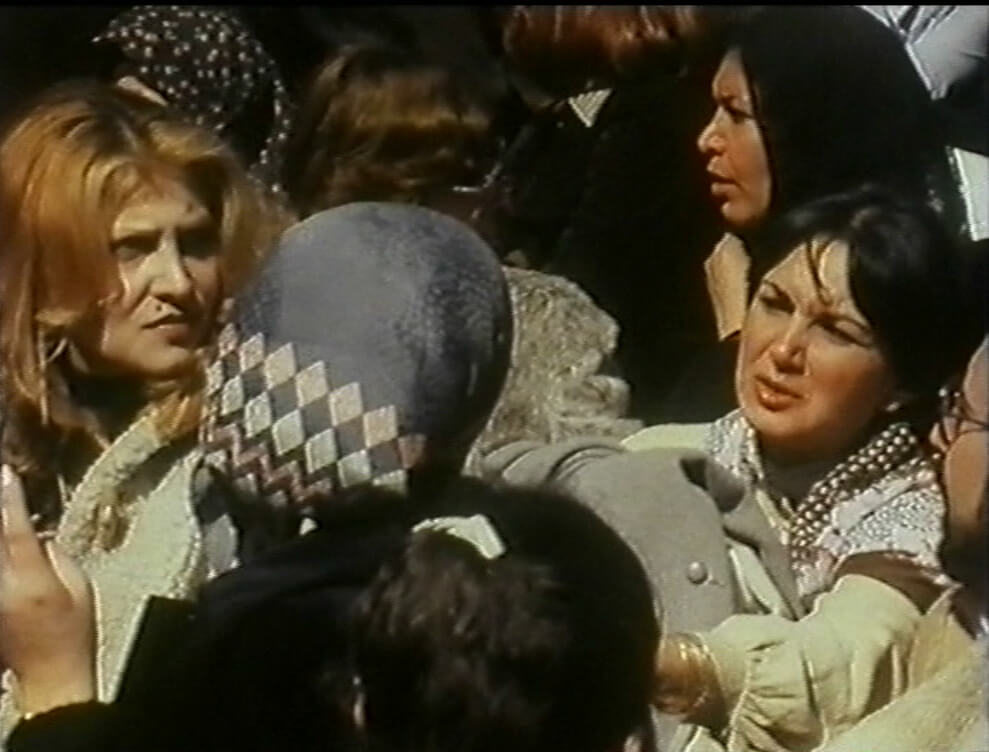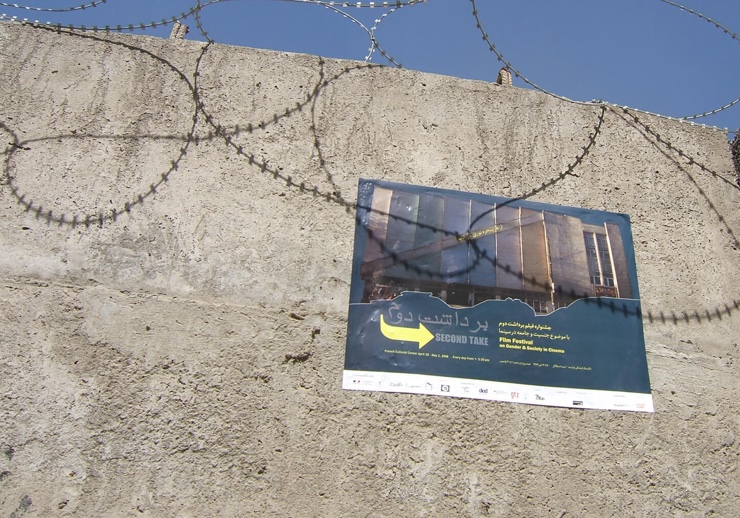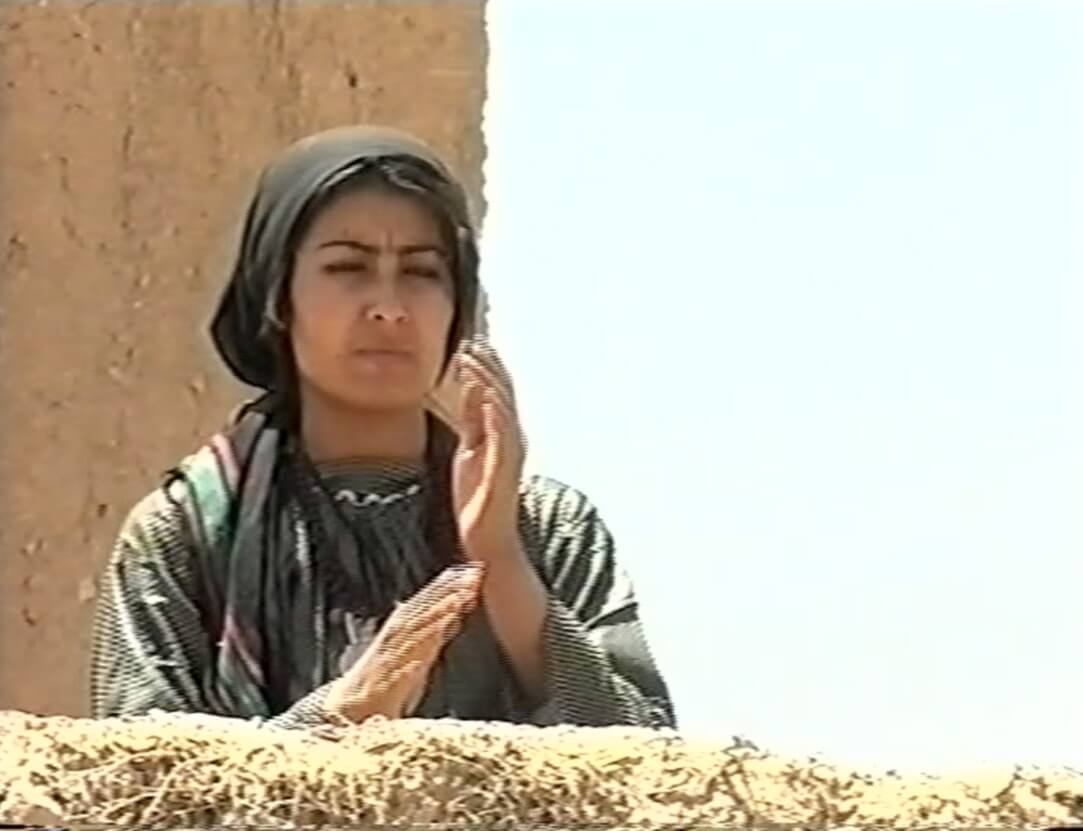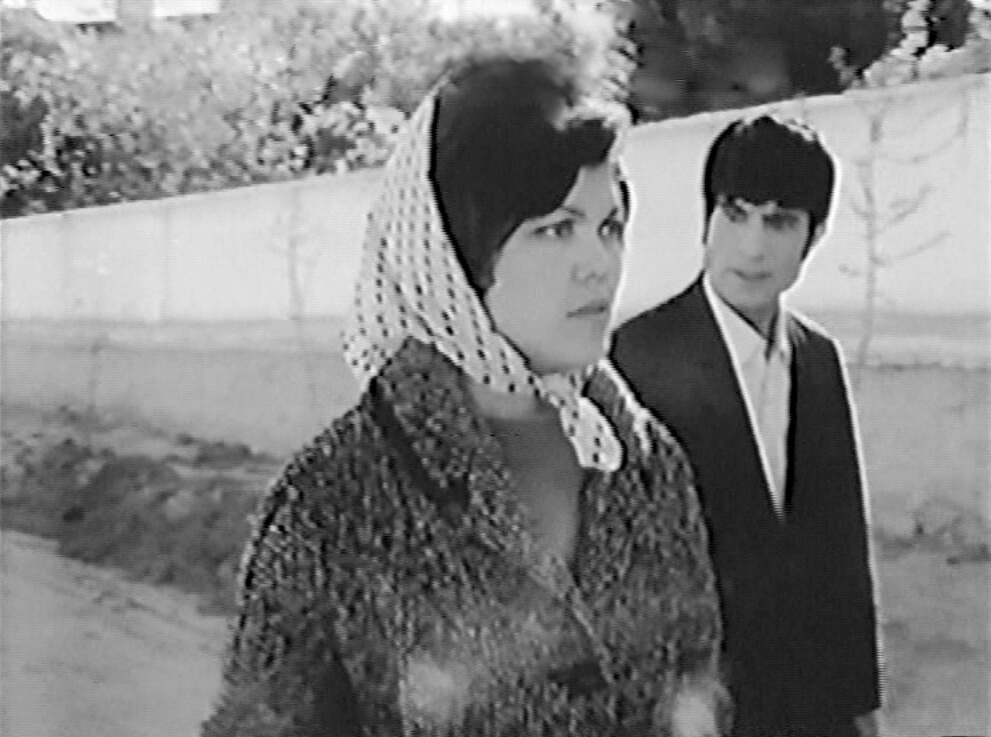SECOND TAKE
Gender and Society in Cinema
Kabul. 2008

First Take
"...if you come to my house, dear friend
bring me a lamp and a window,
so I can look through it at the crowd in the happy alley."
Forugh Farrokhzad
The world can lie below your wings,
life can rest in your hands,
if you stand up and pass
if you shout out
freedom and flight
with the loudest voice, the voice of a woman
if you shout out.
We wanted to open a window, as small, as it might be.
And maybe it can throw
some light on your cold and lonely seasons,
as little as it might be.
Diana Saqeb
SECOND TAKE
is the term for repeating a take in order to achieve a better result. The second take is never identical with the first one. The film festival SECOND TAKE is the continuation of the SPLICE IN film programme that was previously screened in Germany.

In the short history of Afghan cinema, women have been behind the camera for the first time only since 2001. Their cinematographic work is political in that it reflects and criticizes the present situation and is committed to the future status of women in Afghan society.
SECOND TAKE festival juxtaposes the theme of "women and Afghanistan", which has been repeatedly instrumentalized, with local initiatives of female filmmakers, actresses and women's organizations, whose political work partially goes back to pre-Taliban times and has since then also been pursued in exile.
SECOND TAKE shows current documentary film productions, full-length features and educational feature films, e.g., the short feature Rushany ("Lightness") by the director Latif Ahmadi from 2004 that deals in a humorous way with teaching village women how to read and write. Also, two historical films from the archive of Afghan Films will be shown: the feature film Talabgar ("The Marriage Candidate") shot in 1969 by Khaleq Alil and the short feature Sayeh ("Shadow") by the director Nacir Alqas from 1990.
Making a cinematic link to India, Iran, Europe, and the USA, topics such as gender and society within and across national borders are addressed. For example, the Indian film Nari Adalat ("Women Courts") by the filmmaker and women's activist Deepa Dhanraj that documents an alternative legal form, originating from a self-initiative, which intervenes in existing, hierarchical, legal structures. In the documentary Ruzegar-e ma ("Our times"), the Iranian director Rakhshan Bani-Etemad accompanies the 48 female candidates who tried in vain to run for president in 2001. The documentary films of the famous Iranian director and poet Forugh Farrokhzad and the director Kamran Shirdel historically refer to Iranian cinema of the 1960s. The feature film La Promesse shot in Belgium by Jean-Pierre and Luc Dardenne in 1996 deals with the situation of refugees in Belgium and the relationship of 15-year-old Igor to his father.
The festival is opened by Diana Saqeb's documentary 25 Darsad ("25 Percent") from 2007 on the everyday difficulties of female members of parliament in Afghanistan. It will be followed by the film Divorce Iranian Style by Kim Longinotto and Ziba Mir-Hosseini about women in a Tehran family court.
The SPLICE IN film programme was previously shown in Germany in Kassel, Berlin and Hamburg, and has now been newly compiled in cooperation with CACA-Kabul in Kabul under the title SECOND TAKE.
Last Take
The current atmosphere in which people suffer under unstable living conditions, in which daily explosions make life extremely difficult and culture is treated with hostility, in these times it seems almost impossible to organise a film festival on the theme of gender.
The determination of the team of organisers to create an open atmosphere brought us together from Germany and Afghanistan despite the unfavourable circumstances so that the film festival SECOND TAKE can bear fruit.


A few words on the organisers
mazefilm is an independent group of female artists founded in Berlin by two artists. The work of this artistic association mainly focuses on producing documentary films, doing research on gender and politics in film and organising film festivals. For several years now, the group's work has been concentrating on Afghanistan.
mazefilm was involved into the editing of the book Kabul/Teheran 1979ff - Filmlandschaften, Städte unter Stress und Migration, a publication on film, urban development and migration, and participated in the exhibition Kabulistan in Madrid.
It is a major concern of the Centre for Art and Culture Afghanistan (CACA-Kabul), which was founded in Kabul in 2003, to initiate new and independent developments.
CACA-Kabul produces documentary films, is the publisher of the literary and art magazine Honarmand, organises film festivals, and under the name Cinema-Club holds discussion rounds on the critique and analysis of films.
Shared opinions have enabled the collaboration between mazefilm and CACA-Kabul and the realisation of the festival SECOND TAKE in Kabul.
Finally, we would like to acknowledge and cordially thank all those who supported us in realising the festival SPLICE IN in Germany and SECOND TAKE in Afghanistan:
Ingenieur Latif Ahmadi / Afghan Film / Kabul, Jochen Becker / metroZones / Berlin, Gabriel Buti & Kristell Dorval / French Cultural Center / Kabul, Kai Franke DAAD / Dushanbe, Jeannette Gaussi / Berlin, Golalai Habib / Donya-je zan / Kabul, Lien Heidenreich & Ibrahim Hotak & Rita Sachse Toussaint / Goethe-Institut / Kabul, Azra Jafari & Guissou Jahangiri / Armanshahr / Kabul, Tarous Jaghory / Kabul, Joost Janmaat / Amsterdam, Ali Karimi / CACA-Kabul, Merle Kröger / Berlin, Anke Marschall / Berlin, Jamila Mujahed & Matin Mujahed / Malalai / Kabul, Mowdood Popal / Kabul, Marion Müller & Semin Qasmi / Heinrich-Böll-Stiftung, Roya Sadat / Kabul, Nacir & Schabnam Alqas / Kassel, Katharina von Wilcke / DepArtment / Berlin, Leeda Yaqoobi & Afifa Azim / Afghan Women's Network / Kabul
We hope that the result of this collaboration will lead to further co-operations between independent groups nationally and internationally.
